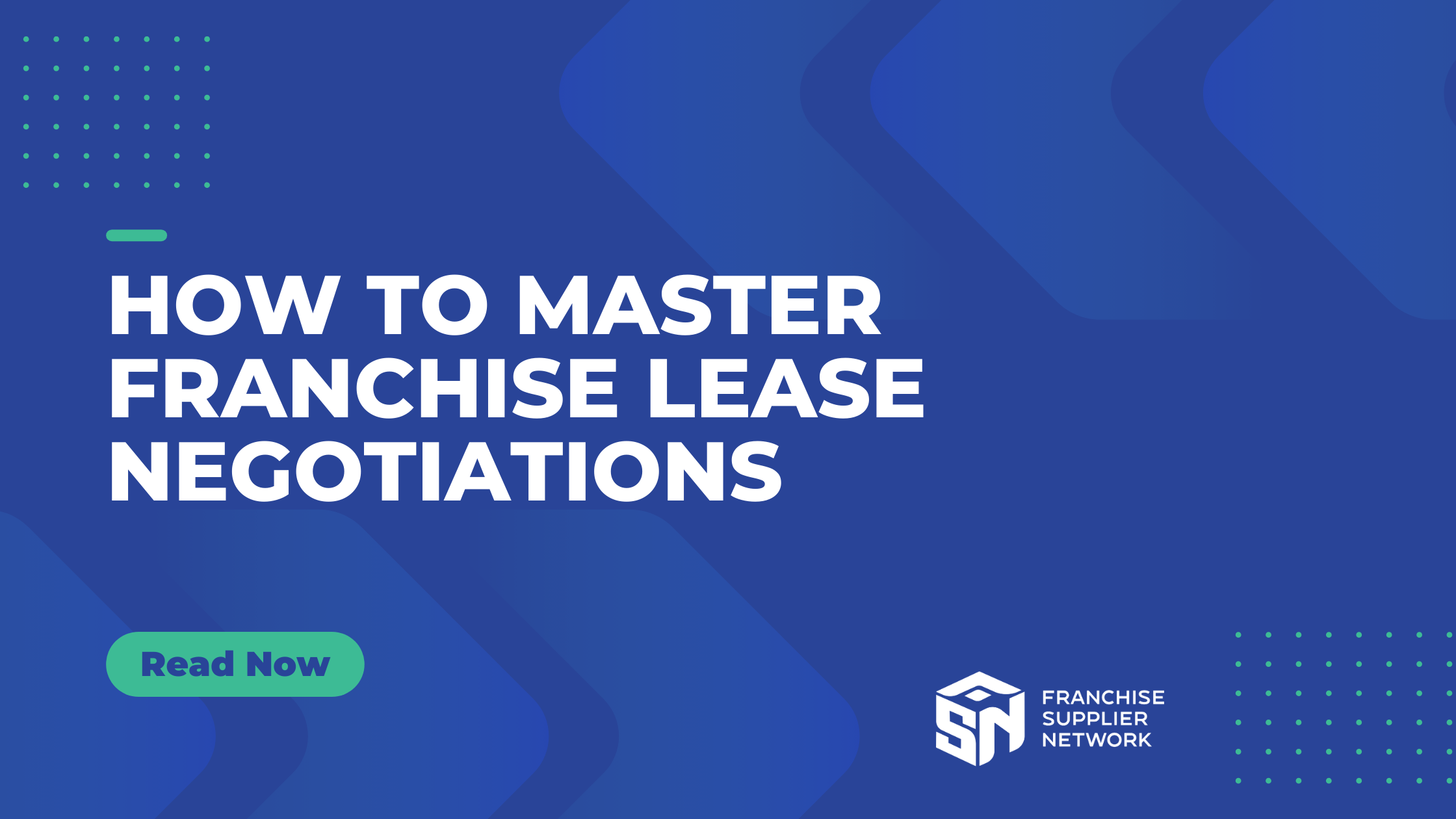Mastering Franchise Lease Negotiations with Leasecake

As a franchise owner, one of the most critical aspects of your business success is securing a favorable lease agreement for your franchise location. Whether you’re opening a new franchise or renewing an existing lease, navigating the complexities of lease negotiations can significantly impact your bottom line. To ensure you secure advantageous terms and save money, follow this checklist to help you come out ahead during your next negotiation.
Reviewing the Lease Agreement
Before diving into negotiations, it’s essential to thoroughly review the lease agreement with the assistance of a real estate lawyer who understands the intricacies of franchise leases. Key areas to focus on include:
- Confirming all exhibits and documents are attached to the lease.
- Validating the legal entity of the other party.
- Understanding the type of lease being offered (e.g., triple net, gross, modified gross).
- Researching fair market value to determine reasonable rent expectations.
- Paying special attention to maintenance, repair, and common area expenses clauses.
Understanding the Clauses
Each clause in your lease can significantly impact your financial obligations and operational flexibility. It’s crucial to understand and negotiate these clauses effectively:
- Rent adjustment clause: Evaluate if your rent is tied to sales or third-party indexes and avoid unpredictable increases like consumer price index (CPI) adjustments.
- Renewal clause: Negotiate for favorable renewal options to maintain control over your franchised premises.
- Assignment/Sublease clause: Discuss terms for subleasing or assigning the space to protect your interests in case of business changes.
- Franchise Improvement clause: Request allowances or rent abatements to offset costs for improving the franchised premises.
- Early Termination clause: Understand conditions and penalties associated with terminating the lease early.
- CAM clause: Common area maintenance clauses can be vague, but this is one area you definitely want clarity on to ensure you don’t get stuck paying for more than anticipated. More details here.
Negotiating Points
When negotiating lease terms, consider the following strategies to optimize your agreement:
- Term Length: Discuss trade-offs between rent reduction and lease duration, backed by market research.
- Concessions: Request landlord-provided franchise improvements or rent abatements to enhance your space.
- CAM Charges: Negotiate favorable terms on common area maintenance expenses to control additional costs.
- Exclusive Use Clauses: Seek exclusivity rights to prevent direct competition within the property.
- Assignment and Subletting: Clarify terms for assigning or subletting the space to maintain flexibility.
- Admin Fees: Negotiate the removal of administrative fees if rent is on the higher end.
Finalizing the Deal
Once negotiations are complete, take these steps to finalize the lease agreement:
- Legal Review: Seek counsel from a leasing specialist to review and address any legal concerns.
- Documenting Agreements: Ensure all negotiated changes are documented in writing and added to the lease.
- Review Final Lease: Double-check the final lease draft to confirm negotiated terms accurately.
- Final Approval and Execution: Coordinate with the landlord to sign the lease agreement and retain copies for your records.
Staying on Top of the Details
To ensure ongoing compliance and preparedness for future negotiations:
- Lease Audits: Schedule periodic reviews to ensure compliance with lease terms.
- Reminders and Dates: Utilize lease management software to track critical dates and receive automated reminders.
- Prepare for Renegotiation: Start lease renegotiations well in advance to maintain negotiating leverage.
Building Strong Relationships with Landlords
Establishing and maintaining a positive relationship with your landlord is crucial for the success of your franchise. Good communication fosters mutual understanding and trust between you and your landlord. Be proactive in addressing any concerns or issues related to the lease agreement promptly. Regularly update your landlord on the status of your franchise and any significant developments that may affect the property.
A good relationship with your landlord can lead to greater flexibility and cooperation when it comes to lease negotiations or addressing unexpected challenges. By demonstrating your commitment to being a responsible tenant and maintaining the property, you may find your landlord more willing to accommodate reasonable requests or offer concessions.
Inevitably, issues may arise during the term of your lease, such as maintenance issues or disputes over lease terms. Having a positive relationship with your landlord can facilitate the prompt resolution of these issues, minimizing disruptions to your franchise operations.
Building a strong relationship with your landlord can yield long-term benefits for your franchise. A satisfied landlord may be more inclined to renew your lease on favorable terms or provide support for expansions or renovations. Additionally, a positive recommendation from your landlord can enhance your reputation and credibility when seeking new franchise opportunities. By prioritizing good communication and fostering a positive relationship with your landlord, franchise owners can create a conducive environment for success and longevity in their leased premises.
Following this lease negotiation checklist empowers franchise owners to confidently navigate the complexities of franchise leases, secure favorable terms, and ultimately save money while ensuring the success of their businesses.
For more information on Leasecake and how it can help ensure that you never miss a lease renewal or other obligation, visit www.leasecake.com.
Get connected with Leasecake here.
Back
